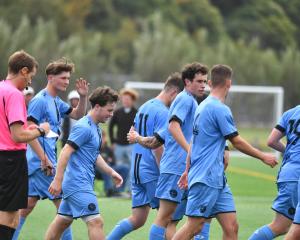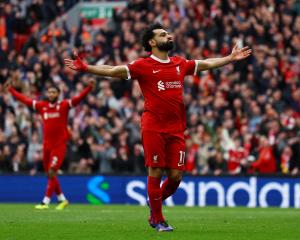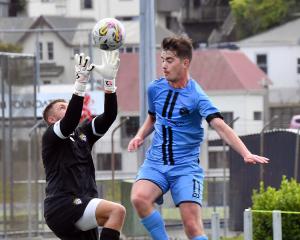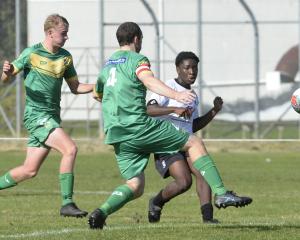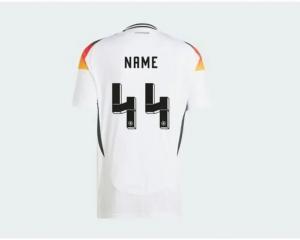The balance between football and finance is key to securing the future of the national premiership.
That is the view of Southern United CEO Chris Wright, who attended this week’s summit where the 10 clubs met New Zealand Football to discuss the league’s future.
The summit came a day after calls for change in the league from Hawke’s Bay United, after the club revealed a $40,000 shortfall late last year.
A competitions review, looking at the future of the league, has been taking place at NZ Football.
Among the things considered have been the length of season, time of season and the type of clubs playing. Wright agreed something needed to change to find a more sustainable model.
"For us, sustainability is a big challenge," he said.
"We feel that something does need to change, whether it’s more funding to assist the clubs with rising expenses, or whether it’s the timing of the season, or number of games.
"It really is about balancing what’s ideal from a football perspective with what’s achievable financially."
While a longer season would be ideal for football, he said, it might not be so achievable financially.
Several options were being discussed, although Wright said Southern was just keen for a decision to be made.
At present the club was running on a year-to-year basis.
If a three to five-year solution were decided on, that would give Southern stability and the means to plan ahead.
He said while Hawke’s Bay’s struggles were concerning, they were not a surprise.
Balancing costs and competitiveness were difficult in the regional clubs.
Grant funding access was lower, player pools were smaller and finding sponsorship became harder, as did raising money.
"Potentially, something NZ Football needs to look at is equity," Wright said.
"If they want truly regional representation, then potentially some of the more regional clubs need a bit more help."
This year Football South would include a player levy of between $2 and $8 to help fund Southern.
That came after strong support for continuing the club and a majority indicating they were prepared to chip in to help with that.
It was similar to what Mainland did for Canterbury United, a club with a model he felt Southern could look to emulate.
Reaching the heights of Auckland City and Team Wellington would involve bigger changes.
Those would probably need private investors and vastly more sponsorship.
However, while it was not without its challenges, he did think Southern United remained sustainable long term.
"It’s our responsibility to make sure that it is.
"It’s important for our region to have national league representation.
"Just because it’s harder doesn’t mean it’s not worth fighting for.
"We’ve got to keep fighting for it and we’re much closer to sustainability than we were when we took the club over three years ago."

